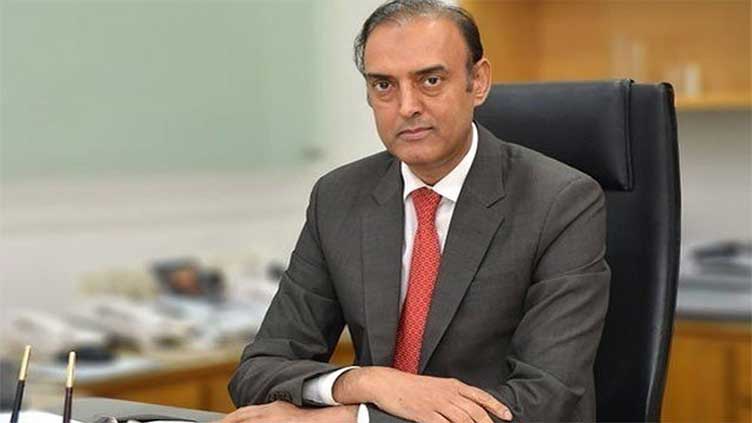Governor State Bank of Pakistan (SBP), Jameel Ahmad, met key international investors during events organized by global banks, including Barclays, JP Morgan, Standard Bank, and Jefferies on the
sidelines of the IMF-World Bank meetings in Marrakech, Morocco.
Governor SBP briefed the investors about the recent macroeconomic developments, policy responses to current challenges,
and the outlook of Pakistan’s economy, and also answered their questions.
The Governor informed the investors that the current policy mix adopted by the Government and the
Central Bank is geared towards achieving stabilization through addressing macroeconomic
imbalances.
He apprised that the SBP is among the first central banks that began to tighten monetary
policy in the wake of the rising inflation globally.
However, certain domestic challenges, most notably the unprecedented floods in the beginning of the previous fiscal year, complicated SBP’s efforts to bring down inflation. On a cumulative basis, SBP has increased the policy rate by 1500 bps over the last two years.
Likewise, the government has also stepped up its fiscal consolidation efforts.
Ahmad said that the stabilization measures have started yielding results. Inflation has come down
to 31.4 percent in September 2023 after peaking at 38.0 percent in May 2023 and is expected to
continue its downward trajectory over the coming months, whereas the external account has
improved considerably and foreign exchange buffers are being built up.
Governor SBP shared that with the policy rate at 22 percent, the SBP assesses the real interest rates turning substantially
positive on a forward-looking basis, as inflation is expected to come down significantly during the second half of this fiscal year. Going forward, the Stand-By arrangement with the IMF is expected to support the ongoing policy efforts to stabilize the economy.
The Governor also highlighted the shock-absorbing role of the market-determined exchange rate and
the support from multilateral and bilateral lenders in addressing the external sector challenges.
The current account deficit (CAD) reduced to 0.7 percent of GDP in FY23 from 4.7 percent in FY22. The
earlier administrative measures that had contributed towards the lowering of CAD last year, are now
withdrawn. Nonetheless, the ongoing stabilization measures and flexible exchange rate are expected
to keep the CAD within the range of 0.5-1.5 percent of GDP in FY24.
Jameel Ahmad informed the investors that the foreign exchange buffers are improving with both
build-up in reserves and reduction in forward foreign exchange liabilities. He explained that since
January 2023, SBP’s foreign exchange reserves improved from a low of $3.1 billion to $7.6 billion as of
end-September 2023.
The reserves build-up was largely supported by non-debt creating inflows amid
favorable market conditions. At the same time, SBP’s forward foreign exchange liabilities have
declined and the forward book target of $4.2 billion for end-September 2023 agreed with the IMF has
already been met by a wide margin. Similarly, SBP is also very comfortably placed to meet the other
end-September IMF targets, including Net International Reserves (NIR) and Net Domestic Assets
(NDA).
In his remarks, the Governor SBP emphasized that emerging economies are faced with multiple
challenges, such as access to capital markets, growing anti-trade sentiments, debt sustainability, and
building climate-resilient and inclusive economies and there is a need for multilateral institutions like the
IMF and World Bank to take the lead role in shoring up global buy-in to address these challenges.
For Pakistan’s part, the country is on-track to address the longstanding structural weaknesses, and
with the support from its multilateral and bilateral partners, it would be able to achieve sustainable
and inclusive economic growth over the medium term.
Post Views: 67


 Sports3 months ago
Sports3 months ago
 Sports3 months ago
Sports3 months ago
 Fashion3 months ago
Fashion3 months ago
 World3 months ago
World3 months ago
 World3 months ago
World3 months ago
 Sports2 months ago
Sports2 months ago
 Sports2 months ago
Sports2 months ago
 World3 months ago
World3 months ago






















